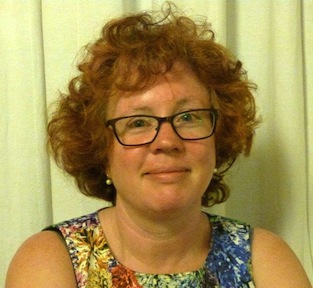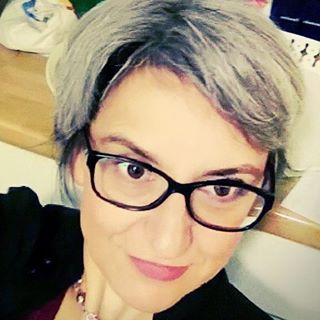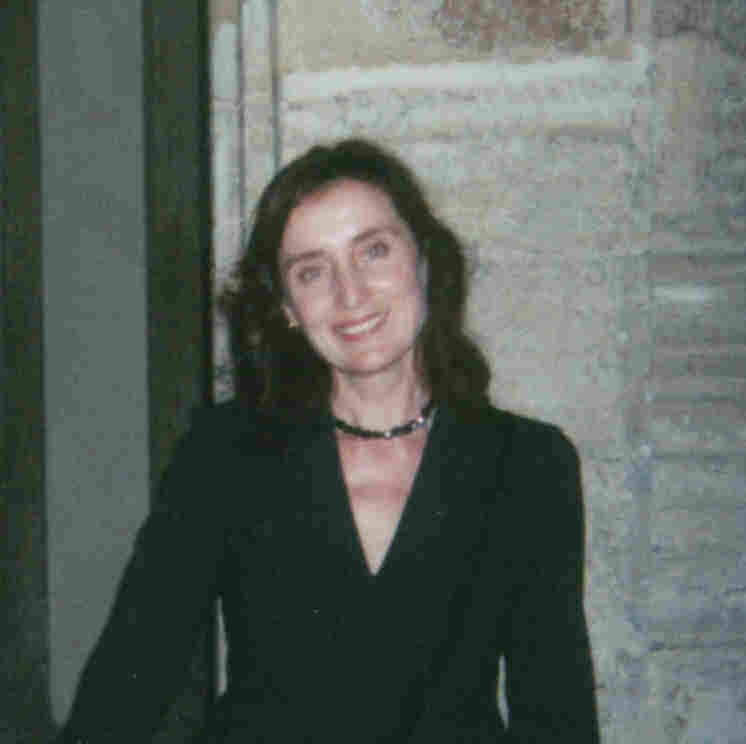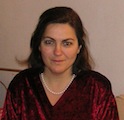Studying at the University of Verona
Here you can find information on the organisational aspects of the Programme, lecture timetables, learning activities and useful contact details for your time at the University, from enrolment to graduation.
Academic calendar
The academic calendar shows the deadlines and scheduled events that are relevant to students, teaching and technical-administrative staff of the University. Public holidays and University closures are also indicated. The academic year normally begins on 1 October each year and ends on 30 September of the following year.
Course calendar
The Academic Calendar sets out the degree programme lecture and exam timetables, as well as the relevant university closure dates..
| Period | From | To |
|---|---|---|
| I semestre | Oct 4, 2010 | Jan 15, 2011 |
| II semestre | Feb 21, 2011 | May 28, 2011 |
| Session | From | To |
|---|---|---|
| sessione esami invernale | Jan 17, 2011 | Feb 19, 2011 |
| sessione esami estiva | Jun 1, 2011 | Jul 9, 2011 |
| sessione esami autunnale | Sep 1, 2011 | Sep 29, 2011 |
| Session | From | To |
|---|---|---|
| sessione lauree autunnale | Nov 25, 2010 | Nov 27, 2010 |
| sessione lauree invernale | Apr 18, 2011 | Apr 20, 2011 |
| sessione lauree estiva | Jul 11, 2011 | Jul 15, 2011 |
| Period | From | To |
|---|---|---|
| All Saints | Nov 1, 2010 | Nov 1, 2010 |
| National holiday | Dec 8, 2010 | Dec 8, 2010 |
| Vacanze di Natale | Dec 24, 2010 | Jan 8, 2011 |
| Vacanze di Pasqua | Apr 21, 2011 | Apr 26, 2011 |
| National holiday | Apr 25, 2011 | Apr 25, 2011 |
| Labour Day | May 1, 2011 | May 1, 2011 |
| Local holiday | May 21, 2011 | May 21, 2011 |
| National holiday | Jun 2, 2011 | Jun 2, 2011 |
Exam calendar
Exam dates and rounds are managed by the relevant Foreign Languages and Literatures Teaching and Student Services Unit.
To view all the exam sessions available, please use the Exam dashboard on ESSE3.
If you forgot your login details or have problems logging in, please contact the relevant IT HelpDesk, or check the login details recovery web page.
Should you have any doubts or questions, please check the Enrollment FAQs
Academic staff
Ambrosi Paola
 paola.ambrosi@univr.it
paola.ambrosi@univr.it
 +39 045 802 8466
+39 045 802 8466

Bettoni Camilla
 camilla.bettoni@univr.it
camilla.bettoni@univr.it
 +39 045 802 8199
+39 045 802 8199
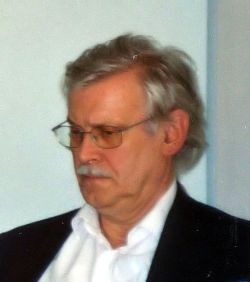
Busch Bernard Walter
 daniela.carpi@univr.it
daniela.carpi@univr.it

Degani Marta
 marta.degani@univr.it
marta.degani@univr.it
 +39 045802 8259
+39 045802 8259
 cinzia.delotto@univr.it
cinzia.delotto@univr.it
 cecilia.grana@univr.it
cecilia.grana@univr.it

Ligas Pierluigi
 pierluigi.ligas@univr.it
pierluigi.ligas@univr.it
 +39 045 802 8408
+39 045 802 8408

Locher Elmar
 elmar.locher@univr.it
elmar.locher@univr.it
 +39 045802 8311
+39 045802 8311

Migliorati Lorenzo
 lorenzo.migliorati@univr.it
lorenzo.migliorati@univr.it
 045802 8135
045802 8135
 carmen.navarro@univr.it
carmen.navarro@univr.it
 sara.paolini@univr.it
sara.paolini@univr.it
 rita.severi@univr.it
rita.severi@univr.it
Villani Simone
 simonevillani@tiscali.it
simonevillani@tiscali.it
Study Plan
The Study Plan includes all modules, teaching and learning activities that each student will need to undertake during their time at the University.
Please select your Study Plan based on your enrollment year.
1° Year
| Modules | Credits | TAF | SSD |
|---|
Prima lingua straniera anno ISeconda lingua straniera anno IPrima letteratura straniera anno ISeconda letteratura straniera anno I2° Year activated in the A.Y. 2011/2012
| Modules | Credits | TAF | SSD |
|---|
Prima letteratura straniera anno IISeconda letteratura straniera anno IIPrima lingua straniera anno IISeconda lingua straniera anno IIUn insegnamento a scelta tra i seguenti3° Year activated in the A.Y. 2012/2013
| Modules | Credits | TAF | SSD |
|---|
Prima letteratura straniera anno IIISeconda letteratura straniera anno IIIPrima lingua straniera anno IIISeconda lingua straniera anno IIIUn insegnamento a scelta tra i seguenti| Modules | Credits | TAF | SSD |
|---|
Prima lingua straniera anno ISeconda lingua straniera anno IPrima letteratura straniera anno ISeconda letteratura straniera anno I| Modules | Credits | TAF | SSD |
|---|
Prima letteratura straniera anno IISeconda letteratura straniera anno IIPrima lingua straniera anno IISeconda lingua straniera anno IIUn insegnamento a scelta tra i seguenti| Modules | Credits | TAF | SSD |
|---|
Prima letteratura straniera anno IIISeconda letteratura straniera anno IIIPrima lingua straniera anno IIISeconda lingua straniera anno IIIUn insegnamento a scelta tra i seguentiLegend | Type of training activity (TTA)
TAF (Type of Educational Activity) All courses and activities are classified into different types of educational activities, indicated by a letter.
History of the English Language (2012/2013)
Teaching code
4S00897
Credits
6
Language
Italian
Scientific Disciplinary Sector (SSD)
L-LIN/12 - LANGUAGE AND TRANSLATION - ENGLISH
The teaching is organized as follows:
Modulo 2
Credits
3
Period
I semestre
Academic staff
Marta Degani
Modulo 1
Learning outcomes
Module:
-------
The course is aimed to introduce students to the study of the English language in its spoken and written form as it evolved starting from the eighteenth century.
Program
Module:
-------
Module II (18 hours)
The course is meant to illustrate the development of the English language from 1700 up until now. Particular attention will be given to the following aspects: a) the standardization of English, b) the codification of the language in dictionaries, c) the relevance of historical and cultural factors for the social and geographical diversification of English, and d) the spread of English as the language of global communication.
Bibliography
Basic readings:
Baugh, Albert C. and Thomas Cable. 2002. A History of the English Language. London: Routledge (chs. 9 -11).
Beal, Joan. 2004. English in Modern Times: 1700-1945. London: Arnold.
Melchers, Gunnel and Philip Shaw. 2011. World Englishes. 2nd ed. London: Hodder Education Publishers.
Mugglestone, Lynda. 2006. The Oxford History of English. Oxford: Oxford University Press (chs. 10-14)
For consultation:
Crystal, David. 2003. The Cambridge Encyclopedia of the English Language. Cambridge: Cambridge University Press.
Further information on relevant literature will be provided at the beginning of the course.
Note: the course will be held in English.
Examination Methods
Module:
-------
Oral exam in English. For the exam students will be asked to present a small research project.
Type D and Type F activities
To discover all the teaching activities accredited by the foreign teaching college click here
Career prospects
Module/Programme news
News for students
There you will find information, resources and services useful during your time at the University (Student’s exam record, your study plan on ESSE3, Distance Learning courses, university email account, office forms, administrative procedures, etc.). You can log into MyUnivr with your GIA login details: only in this way will you be able to receive notification of all the notices from your teachers and your secretariat via email and soon also via the Univr app.
Student login and resources
Gestione carriere
Assegnazione tutore
Attività accreditate D/F
Calendario didattico dettagliato
Cambio lingua curriculare
Competenze informatiche
Competenze linguistiche (prima e seconda lingua)
Competenze linguistiche in triennale (terza lingua CFU F)
Compilazione del piano didattico
Corso di Lingua portoghese
Erasmus+ e altre esperienze all'estero
Linguistic training CLA
Presentazione dei corsi di studio e Open day
Graduation
Saperi minimi
Stage e tirocini
Le attività di stage sono finalizzate a far acquisire allo studente una conoscenza diretta in settori di particolare interesse per l’inserimento nel mondo del lavoro e per l’acquisizione di abilità professionali specifiche.
Le attività di stage sono svolte sotto la diretta responsabilità di un singolo docente presso studi professionali, enti della pubblica amministrazione, aziende accreditate dall’Ateneo veronese.
I crediti maturati in seguito ad attività di stage saranno attribuiti secondo quanto disposto nel dettaglio dal “Regolamento d’Ateneo per il riconoscimento dei crediti maturati negli stage universitari” vigente.
- Tutte le informazioni in merito agli stage per futuri studenti sono disponibili alla pagina Stage e tirocini.
- Tutte le informazioni in merito agli stage per studenti iscritti sono pubblicate in MyUnivr - come fare per - stage e tirocini.
- Tutte le informazioni in merito agli stage per le aziende sono disponili alla pagina Stage e tirocini per azienze.
Ulteriori informazioni al seguente link https://www.univr.it/it/i-nostri-servizi/gestione-carriere-studenti-lingue-e-letterature-straniere/stage-e-tirocini-lingue-e-letterature-straniere
